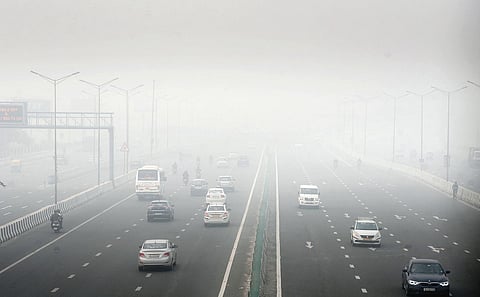

NEW DELHI: Implementing work from home policy in Delhi-NCR and closing down industries are some of the steps suggested by the Delhi government in a meeting of the Commission for Air Quality Management held on Tuesday, Delhi Environment Minister Gopal Rai said.
Chief Minister Arvind Kejriwal on Saturday had announced various emergency measures, including the closure of schools for a week, a ban on construction activities and work from home for government employees, to deal with the pollution crisis faced by the city.
"On Monday, DPCC teams went to see whether the measures are being implemented and they found that the construction work has been stopped," Rai told reporters.
The Supreme Court on Monday had directed the Commission For Air Quality Management to hold a joint meeting and on Tuesday, the states of Punjab, Rajasthan, Haryana and Uttar Pradesh participated in the meeting.
"In the meeting, Delhi government officials suggested implementing work from home policy in Delhi-NCR, ban on construction work and ban on industries so that pollution levels can be controlled. The other states have also put forth their views and we are waiting for an official notification from the commission," Rai said in the briefing.
The "Red Light On, Gaadi Off" initiative -- turning off a car's engine at a red signal -- was supposed to end on November 18.
"The government has taken a decision to extend the campaign by 15 days, from November 19 to December 3," Rai said.
Nearly 2,500 civil defence volunteers are deployed at 100 crossings to make people aware about the significance of turning off their car engine when they are waiting at the traffic signal.
The volunteers are deployed from 8 am to 2 pm and 2 pm to 8 pm in two shifts.
"People are working from home but still cars are out there on the streets. While driving a person, on average, crosses 10-12 crossings and for 30 minutes, fuel-burning happens without any reason. We can take steps to reduce this," the minister added.